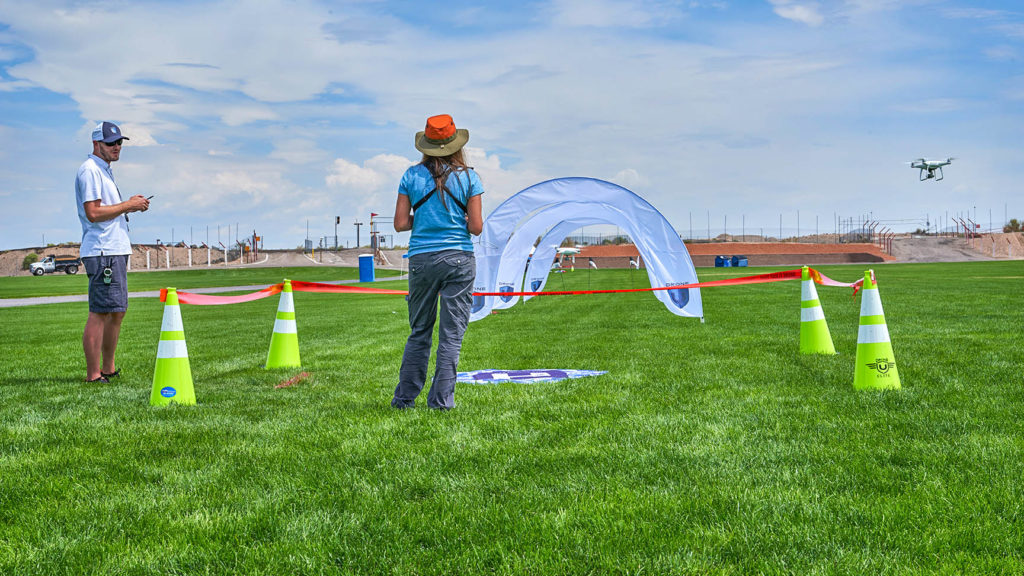
How do you truly help a drone pilot learn how to fly? The right flight school will teach pilots what failed with previous pilots and how to overcome those failures.
Ask any veteran pilot, no not a drone pilot, if they thought the FAA taught them how to fly a plane or helicopter. Well known flight instructors would say, you will not practically learn to fly from the FAA. The FAA has taught people how to access airspace and create systems of working within that airspace. These systems create habits that allow individuals to easily navigate complex environments.
The FAA has done an incredible job of teaching pilots to access and navigate the airspace. The FAA hasn’t really ever helped you learn to fly for manned aircraft or unmanned. For manned aircraft, that job has been left up to Certified Flight Instructors. The CFI’s have traditionally given pilots practical flight tests known as check rides. Thus the evolution of the flight school who hosts the CFI’s.
After the launch of Part 107, it seems the pattern of ignoring practical education has only continued. Albeit the modern age presents new problems to the industry. Aviation education has focused on passing the FAA certification tests with practical flight training afterwards. The age of the internet has only made this worse.
Cyclical Problem with Flight Schools
Flight schools have marketed and advertised to people searching for pilot certificates or pilots licenses. If prospective clients are searching for these terms of passing certification tests, a flight school will focus their energy to advertise to those people. While flight schools advertise to those who search for certificates, they rarely focus on the quality of practical flight training.
With a void of information regarding practical flight training quality, how will prospective students understand the quality of flight schools? While associations help provide a glimpse into the quality of a flight school, this only applies to manned flight schools. (ie. no drones)
Aviation Trends Set Up Standard to Continue to Drones
Without a history of understanding quality of flight schools, and no new standard… Drone flight schools have launched ground schools that once again focused on certification training. Which makes sense. Some of these flight schools offer a peak into how to fly a drone. Most of the flight schools continue to focus on certification and ignore the importance of practical flight training taught from experience.
When most drone flight schools focus on passing the part 107 and fail to dive into practical operations, we’re setting up students to fail… Passing the Part 107 exam is very important to understand airspace. You will learn where you can fly and where you cannot fly. Albeit you will not be taught how to take over control of your drone when it flies away…
Numerous drone flight schools have mimicked the manned aviation world with providing ground schools on drones. Yet how can we expect some of these flight schools to succeed, when they’re not teaching from a position of experience? When you need to learn to fly, you need the right flight school.
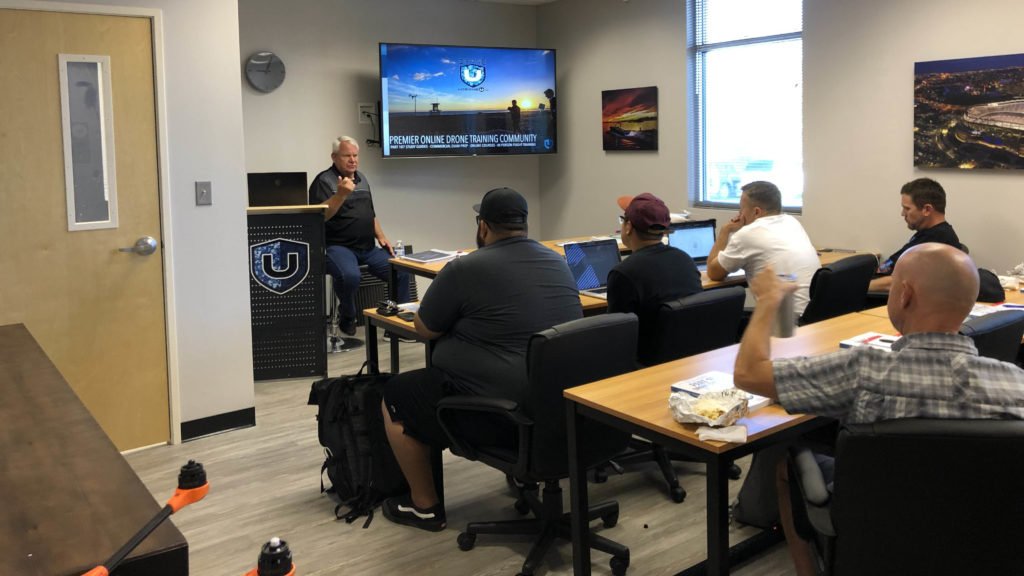
Learning how to fly from a Chef
If you wanted to learn to fly a plane, you would probably want to fly with someone who has flown before right? Would you want to learn to fly a drone from a Chef? I mean they are good at handling pressure and numerous systems right?!?
Would you want to learn to fly a helicopter from an airline pilot? No, the airline pilot has never flown a helicopter…
Drones are no different from their manned aircraft elders. If drone pilots are expected to operate safely in the airspace, they should know how to practically fly their aircraft. If drone pilots are expected to succeed in maintaining a safe flight environment, then they would probably want to learn from an experienced pilots. The most experienced pilots can provide lessons from operating in very different environments.
Teaching from experience is quintessential to provide practical tips to help students avoid crashing. Often times the best lessons are learned in the field. We can magnify those lessons by telling the stories from many experienced drone pilots to students on the internet. We can take years of hard learned lessons and boil them down to minutes in a video. Minutes of a video where every word counts. Dozens of complex lessons boiled down to a few minutes.
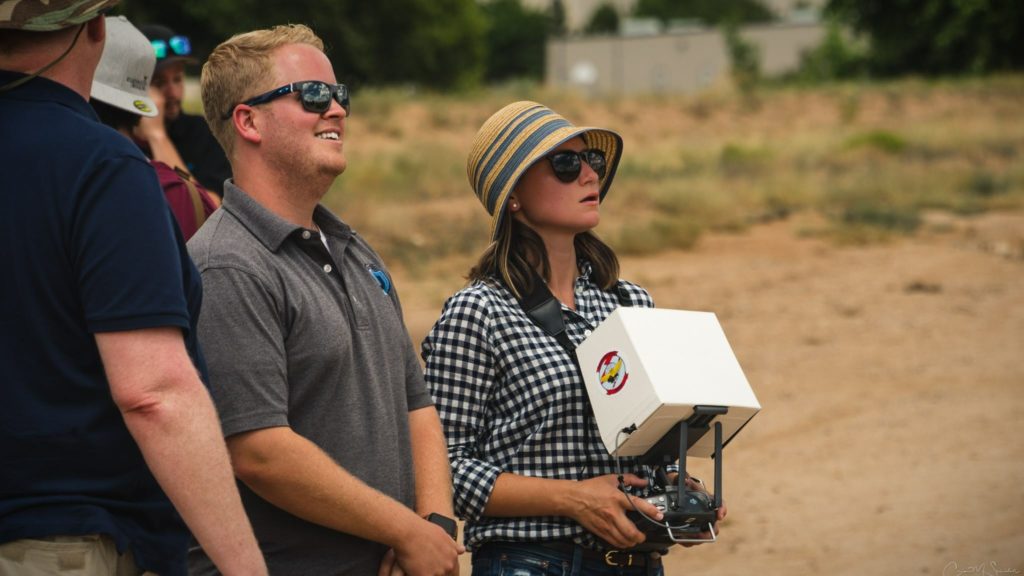
Proof is in the pudding, Props…
Teaching drone pilots from elder drone pilots can help those students avoid the most horrid failures by learning from experiences of others. Experienced drone pilots have served hundreds of drone jobs they have been forced to create habits out of failure and success…It is the school of hard knocks.
If pilots do not create habits, then they continually face molehills that could easily turn into mountains.
Confidence in-flight is built by overcoming problems. Problems are easy to overcome when you have built habits to systematically remove potential hazards from every flight. Experienced drone pilots cannot afford failure if they intend to scale and grow their business.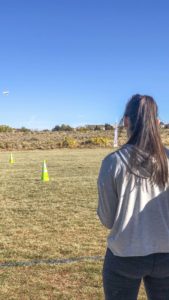
It’s easy to understand. When you fly a drone, you are under immense pressure… if you understand the dangers. If you have many small problems, they add up quickly. As soon as you become emotional and react to any one of those small problems, your chances for failure increase dramatically.
Chris Voss even said you lose 31% of your brain power when you’re stressed. As soon as pilots become stressed, they’re less capable of overcoming a large problem. One problem breeds into another potential problem and the snowball continues. The FAA discusses the error-chain concept in the ADM, which drone pilots are expected to read as well.
In traditional flight schools, manned pilots intentionally put students into a stall so they can overcome the emotional reaction. The next time the pilot experiences the problem individually, they can react practically and without emotion. Typically, facing the problem without the emotional intensity they faced previously. Practice makes perfect which creates the habits to overcome problems.
Beyond Flight School
Since the beginning of learning how to fly drones almost eleven years ago, the lack of practical education was evident.
How would drone pilots learn how to avoid failure if the people who were teaching them have never experienced failure? This hit me like a ton of bricks.
There were no instructors to mimic failure and help pilots avoid failure themselves. No one could mimic the emotional experiences to build physical confidence.
Drones are such complex aircraft, yet with a serious lack of standardization-of-control. Even if an instructor learns how to avoid disaster in one drone, that same solution may not work with another drone.
Which is why instructors should have experience on numerous platforms that presented different problems. Drone flight instructors should have faced these problems in numerous environments.
When operating in various environments, pilots face different issues. Which forces the pilot to better understand your aircraft and the limitations. Pilots who face various environments are more adept in to understand the source of problems. Thus problem solving becomes easier when pilots have more experience with various aircraft flown in various environments.
Experienced instructors might be the only means of creating truly safe pilots. Only they can mimic emergencies they’ve faced in real life, and help pilots create habitual response to solve the problem. This is why you need to learn how to fly from an experienced flight school.
In an effort to go beyond the traditional flight school, Drone U has always ensured our courses are taught from experience. Experienced instructors who have lived the practical drone jobs. Faced hardship and can share their stories humbly. Providing the right systems for instructors to teach at our flight school also helps students retain more information.
Cracking the code of a drone operations formula wasn’t easy. After training thousands of pilots over years and years, there are rules that we developed and tested over time. The rules evolved into the formula that pilots are taught today. In order to learn how to fly and avoid emergencies you should know these tricks.
We’re not the only pilots who believe in these secrets of PRACTICAL flight operation. Even the NTSB requires their uav accident investigators to learn these practical secrets/habits in our flight mastery class.
Flight School Secrets.
Practical drone operational habits start with take off. Before every flight you need to test the engine, controls, communications and environment. How will you know if you’re going to have a truly safe flight? The rules of takeoff and landing will help you there. What are the takeoff rules and landing rules? Why are we giving them away? Because we actually care about the individual pilot’s success and the industries success
Takeoff Rules:
- Takeoff into the wind (incase a problem arises the controls are not inverted, among other solutions)
- Drone & Pilot should have the same orientation
- Pilot should take off, control sweep & climb aggressively and test battery voltage to determine safety of power plant.
-
- If you want to learn how to conduct the battery test, check out our Don’t Crash Course or New Operations Course…free to members
-
Landing Rules
- Land into the wind and away from magnetic objects
- Drone & Pilot should have the same orientation
- Land in GPS denied flight mode to avoid counter ground wash tipover effect
While you could learn the following things from our Online Flight School, check out our podcast to get your drone based questions Answered! Check out the Ask Drone U Podcast!
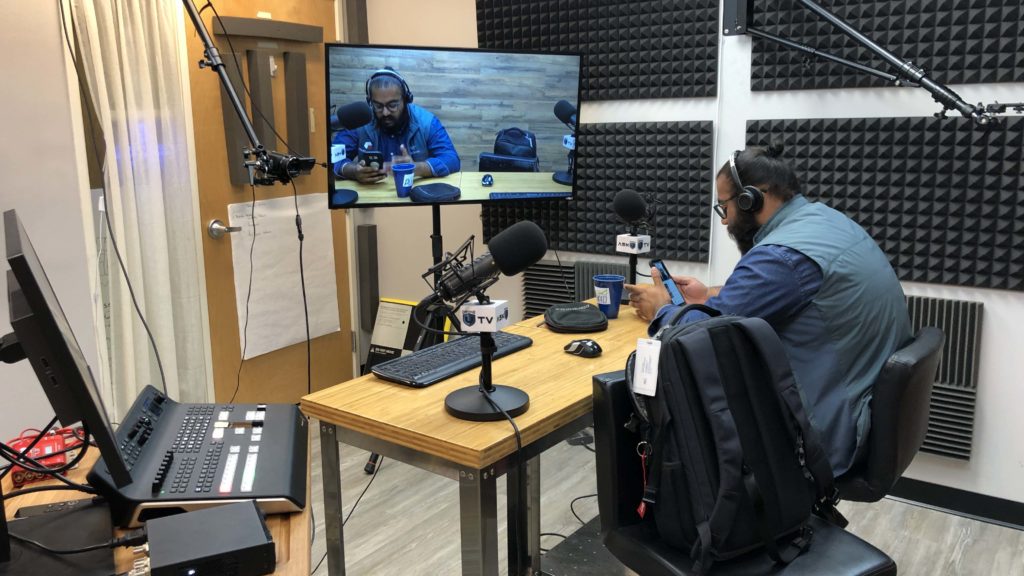
Ready to learn how to master flight? Here are a few things you will learn as a Drone U Member...
- How to stop a flyaway
- Best drone to make the most money and complete the most jobs
- How to determine vehicle orientation without telemetry
- Emergency Landing Method
- How to stop a tipover
- How to avoid battery problems
- How to avoid crashing due to density altitude
- Why you should never fly straight down
- Red Red Red Rule
- How to fly in attitude mode
- How to avoid wind bias
- How to fly in close proximity
- How to fly and track objects
- How to fly in close proximity to moving objects
- How to fly at night for long exposure photos
- How to take aerial panos
- Flight motions for smooth video
- Settings to avoid crashes
- Settings for smooth tilt on your drone
- editing those photos
- Stacking photos for better color
- Editing video, plugins and codecs
- How to create a 3d model (exterior)
- How to create a 3d model (interior)
- How to create a point cloud
- How to create a geo referenced point cloud
- How to create highly precise georeferenced point clouds
- How to understand the lapse rate and its affect on your drone and mapping
- How to create an orthomosaic
- How to edit an orthomosaic
- How to calculate distances from orthomosaics
- How to create virtual storefronts with drones
- How to create maps for corona virus planning
- How to create virtual remote workspaces for numerous teams
- How to create 3d textured meshes for virtual effects.
- Learn to fly hexacopter
- Learn to fly in manual mode
- Learn to fly a cinewhoop drone
- Learn how to fly line-of-sight and first person view
- How to organize equipment
- How to amortize equipment
For $47/month drone pilots are given NUMEROUS pathways to success. All pathways lead to one fun adventure along the way!







Add Your Comment